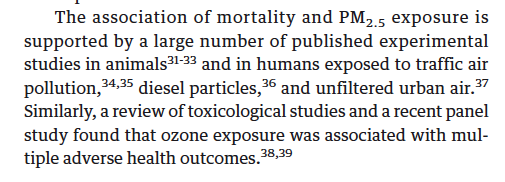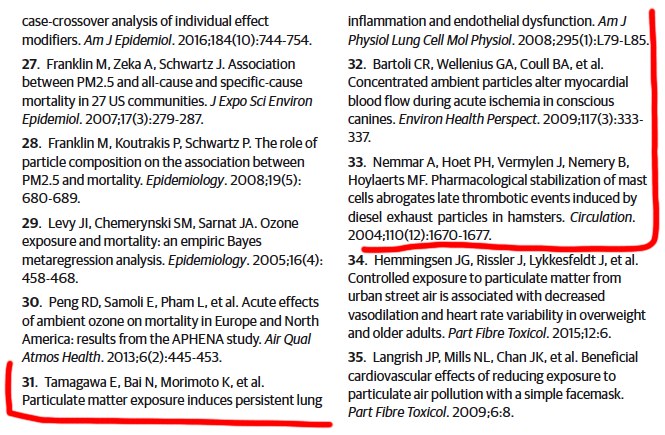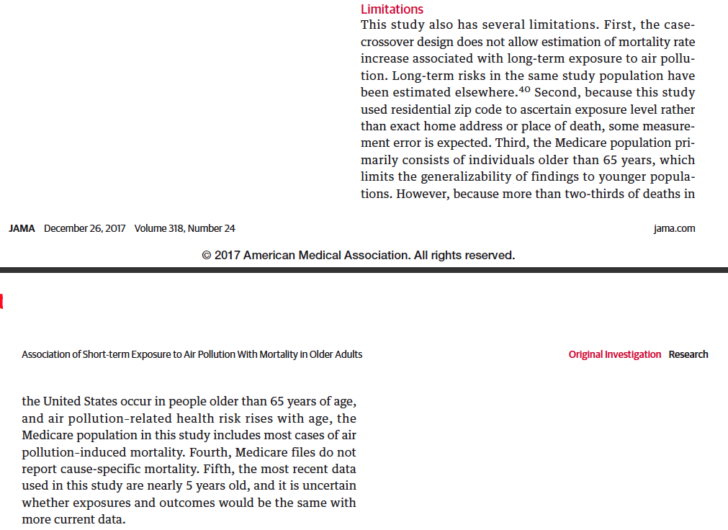The same crew that published the scientific misconduct-fueled PM2.5 study in the New England Journal of Medicine last summer has now published a new scientific misconduct-fueled study based on the same Medicare data in the Journal of the American Medical Association. You can tell that JunkScience.com forced the authors to be somewhat more candid in this study than the one in the NEJM, but they can’t seem to shake their basic dishonesty.

So the NEJM study tried to address mortality from long-term exposure to PM2.5. This study tries to address short-term (same day) mortality from PM2.5. The researchers claim that among these 22+ million Medicare recipients, the risk of mortality increased 1.05% percent per 10 microgram/cubic-meter increase in PM2.5.
The researchers claim to have made this very precise determination even though:
- They don’t know the cause of death of a single study subject. So, for example, deaths from accidents, cancer and other obviously non-PM2.5-related causes are included among the deaths.
- All the daily PM2.5 exposure data is estimated from models. So the researchers have no idea how much PM2.5 any study subject inhaled on the day of death.
That’s a lot of precision from untold imprecision.
Other notable points:
- In the NEJM study, the researchers claimed the 22+ million deaths were caused by long-term exposure to PM2.5. In this study, the researchers claim the 22+ million deaths occurred from short-term (essentially same-day) exposure to PM2.5. Neither study accounts for the other. I suppose we are to conclude that the 22+ million died from both same-day inhalation of PM2.5 and lifetime exposure to PM2.5?
- The new study has about 144,062 deaths fewer than the earlier study (22, 433, 862 vs. 22,567,924) Which deaths were dropped and why?
- Once again, the researchers failed to acknowledge the existence of contrary data, particularly our California study which coincidentally examined short-term deaths from PM2.5.
- The researchers falsely claim that their study results are supported by animal studies.

Here are the animal studies footnoted:

No PM2.5-caused animal mortality is reported in any of these.
- The researchers ignored all the real-world evidence showing that PM2.5 doesn’t kill on any sort of basis that occurs in the real-world.
- The researchers ignored all the limitations of the epidemiologic method (See Section III.C of our letter to the federal Office of Research Integrity).
- You can tell, however, that JunkScience.com is pressuring the Harvard scamsters to alter their behavior. In the NEJM study, there was no discussion of its shortcomings. Now there is this (still woefully inadequate) acknowledgment:

The abstract is below or you can read it and the study at the JAMA web site.

